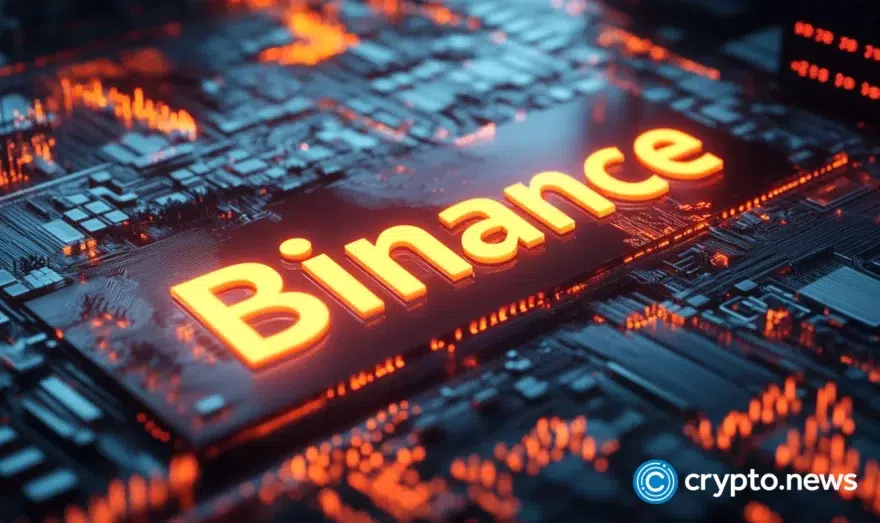TOKEN2049 Singapore highlights: Vitalik singing, market reaction to rate cuts, and the future of the industry

TOKEN2049 has ended in Singapore. Here are three highlights from one of the most anticipated crypto conferences of the year.
One of the largest industry conferences, TOKEN2049, was held from Sept. 18 to 19 in Singapore. It brought together leading figures in the crypto space, who shared their thoughts on trends, developments and priorities for the industry.
What will the crypto industry be like in three years?
One of the highlights of the event was a panel entitled “The Next 3 Years in Crypto,” during which several leaders of major crypto projects discussed where the industry is heading in the near term. Stablecoin issuer Circle‘s CEO Jeremy Allaire, top crypto exchange OKX‘s founder and CEO Star Xu, and Ethereum co-founder Vitalik Buterin participated in the panel discussion and spoke about the digital asset sector’s future, sharing stories from their past experience as long-time participants and leaders in the space.
Self-custody is key
During the panel, OKX’s Xu noted the importance of self-custody technologies for storing cryptocurrency, given their relatively high level of security. However, he also pointed out that promoting self-custody in the crypto industry — meaning holding your crypto yourself instead of using a third-party, like an exchange — does not imply that there is no need to regulate the space.
Speaking about the future of digital assets, Xu noted that over the past ten years, the industry has seen many important technological developments. However, he believes that web3 applications and use cases should be developing even faster.
Less focus on NFTs
Buterin mentioned that one of the main advantages of digital assets is their international, borderless nature. He reiterated the notion that the industry has the potential to meet the needs of people globally who do not have access to the traditional financial system.
He also pointed out the need for practical use cases to drive the mass adoption of digital assets. Buterin called for less focus on expensive NFTs, arguing that they have no real benefits for the industry or for humanity.
The co-founder of Ethereum also said that he believes that improving security in the crypto industry should be a major focus, alongside trying to reduce transaction fees.
Vitalik comments on the accessibility of crypto and sings a crypto song
Buterin also touched on topics such as the accessibility of cryptocurrencies, their use as a means of payment, and security in the ecosystem as a whole.
He argued that it’s no longer valid to say that it’s too early for more widespread adoption of crypto. He compared the extremely limited awareness and adoption of Bitcoin (BTC) in 2013 with the situation just eight years later, in 2021, when a cup of coffee could be bought for Ethereum (ETH) in Argentina.
In between talking about the future of blockchain and cryptocurrencies, he also sang a song about crypto:
And then an improved version of Buterin’s song appeared on social media:
Arthur Hayes predicts market reaction to Fed rate cuts
Also on the first day of the event, the co-founder of derivatives exchange BitMEX, Arthur Hayes, gave a keynote speech with the title “Thoughts on Macroeconomics Current Events.”
Speaking the same day that the U.S. Federal Reserve was expected to announce very anticipated interest rate cuts — which indeed happened later that day — Hayes predicted that the cuts would cause the markets to drop in the short-term:
“I think that the Fed is making a colossal mistake cutting rates at a time when the U.S. government is printing and spending as much money as they ever have in peacetime.”
Hayes noted that the lower interest rates in the U.S. could trigger a market drop in part because of — again — fears around the unwinding of the yen carry trade. Lower interest rates from the Fed, coupled with recently rising rates from the Bank of Japan, lessen the gap between rates in the U.S. and Japan, making the yen carry trade less profitable.
The yen carry trade refers to when investors borrow yen at historically very low rates, convert it into currencies with higher-yield assets, like Treasury Bills in the U.S., and then invest in those assets. Last month, one of the driving factors behind global markets plummeting was the potential unwinding of the yen carry trade.
However, since the U.S. Fed announced a 0.5% cut in interest rates, Bitcoin has gained almost 7%.
The next TOKEN2049 event — which promises to feature 200+ speakers — is scheduled to take place this spring in Dubai.















